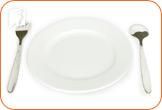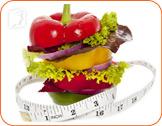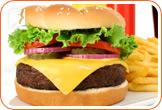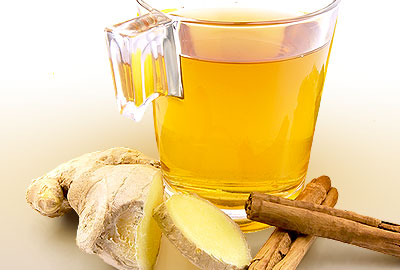Bloating is caused by excess gas or water retention, causing a full feeling in the abdomen. In some cases a noticeable expansion in this area can be seen. Bloating can be tackled through the right changes to your diet, but there seems to be a lot of misinformation regarding which changes work and which ones don't.
MYTH: The Less You Eat, the Less Bloating You Will Suffer

Many people believe that cutting down on food consumption will have an impact upon bloating. They hope bloating will decrease as they lower their calorie count.
FACT: The Amount of Food You Consume Has No Impact on Bloating
The amount of food in your diet has no effect on bloating. It is the contents of your diet that impacts bloating. Because bloating is caused by excess gas rather than fat around the abdomen, reducing the quantity of food you eat will not cure the problem.
MYTH: Detox or Cleansing Diets Will Reduce Bloating

There is a popular belief that quick detox or cleansing diets will reduce stomach bloating without having to make any long term alterations to your diet. These detox diets are popular because they can reduce bloating fast, sometimes from one day to the next.
FACT: Detox Diets Are Diuretic and Can Be Dangerous
Going on a crash detox diet is not recommended to reduce bloating because they can be dangerous. Most detox diets are diuretic and work by triggering immediate water elimination, but they can quickly lead to dehydration or an excessive drop in potassium levels. Furthermore, they can also cause muscle weakness, nausea, and fatigue, and they usually come with a “bounce back” effect. A more sensible option to reduce bloating is to take your time and do it in a safe, healthy manner.
MYTH: Only Junk Food Causes Bloating

Processed snacks or junk food can make bloating worse. The common myth states only diets heavy in processed junk foods, which are loaded with fats and sugars, can cause stomach bloating.
FACT: Nutritious Food Can Lead to Bloating
In actuality, nutritious foods such as whole grains, lentils, beans, chick peas, broccoli, and carrots all carry the risk of bloating your stomach, depending on the person. Dairy products, which are also nutritious, can also cause bloating if you are lactose intolerant.
Stomach bloating is a problem during menopause. Fortunately, there are things you can do to reduce bloating. Getting accurate information and separating these common diet myths from the facts will help you reduce bloating in the safest, most effective manner.
Sources
- National Health Service UK. (2012). Beat the Bloat. Retrieved August 20, 2013, from http://www.nhs.uk/Livewell/digestive-health/Pages/beat-the-bloat.aspx
- National Health Service UK. (2006). Detox Diets. Retrieved August 20, 2013, from http://www.nhs.uk/livewell/tiredness-and-fatigue/documents/truthdetoxdiets.pdf
- National Library of Medicine. (2012). Abdominal bloating. Retrieved August 20, 2013, from http://www.ncbi.nlm.nih.gov/pubmedhealth/PMH0003610/
- Torrens, K. (2013). How to eat to avoid feeling bloated. Retrieved August 20, 2013, from http://www.bbcgoodfood.com/howto/guide/how-eat-avoid-feeling-bloated

